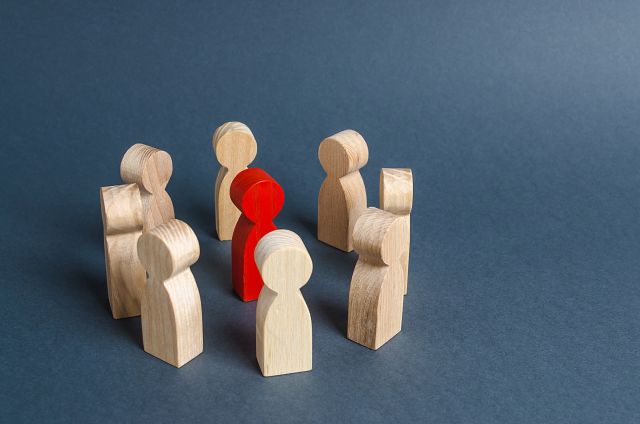Updated on November 13, 2024.
Depression, also known as major depressive disorder or clinical depression, is a medical condition that requires treatment.
Even though there are healthcare providers and therapies that can treat depression, many people go untreated. In medicine, something that prevents a person from getting the treatment they need is referred to as a “barrier to treatment.”
There are many different barriers to treatment. In many cases, people recognize that they require treatment, but may not be able to access it. There may be a shortage of mental health professionals in their area, treatment may be too expensive, or insurance coverage may be too complex. Others may not recognize their moods, thoughts, and behaviors as symptoms that would benefit from treatment.
Another example of a barrier to treatment is stigma.
A definition of stigma
Stigma refers to negative opinions, judgment, discrimination, disapproval, or distrust—particularly when these are directed in a way that is unfair or based on a poor understanding of a person’s circumstances.
If you have ever felt that someone treated you differently (in a negative way) because you have depression, you have experienced stigma. And you are not alone. Stigma and critical attitudes toward mental illness are prevalent.
There is also “self-stigma,” which occurs when a person with depression internalizes the judgments and negative attitudes about the condition. As a result, they may have guilt, embarrassment, shame, or low self-worth, or they may develop other negative ideas about themselves.
Stigma as a barrier to treatment
Both stigma and self-stigma are barriers to treatment for depression.
Mental health disorders like depression are in many ways invisible conditions. Signs like changes in weight, sleeping habits, and low productivity can certainly be noticed by others, but a person’s moods, emotional states, and thoughts might be missed. In many cases, these are signs and symptoms that a person must share if they are to be recognized.
Some people with depression avoid seeking treatment because of concerns about stigma—people cannot judge you for having depression if you are not diagnosed.
It’s worth noting that stigma is a legitimate concern that can have serious consequences. One example is employment. The stigma attached to mental illness can make it more difficult for a person to find work and cause a person to be judged differently compared to their coworkers.
Some research suggests that stigma is a significant contributing factor to unemployment among people who have a mental illness.
Addressing stigma
Stigma can have a serious impact on the life of anyone living with depression, and learning ways to address stigma can be an important tool for anyone living with any type of mental illness. Here are three core strategies to get started:
- Seek treatment. Depression requires treatment, and untreated depression can lead to serious consequences. Stigma is also something that you can address with your healthcare provider. Ask about strategies for dealing with stigma, including your own feelings about mental health.
- Connect with others. The only people who truly understand depression are other people who have had depression. Consider participating in a support group, either one that meets online or one that meets in person.
- Keep learning about depression. As mentioned above, stigma is often based in poor understanding. Depression and many other mental illnesses are poorly understood. Learning more about depression can help you avoid self-stigma. It can also prepare you to talk to others about depression.
Depression can be a life-threatening illness. If you or someone you know is having thoughts of self-harm, suicide, or violence, seek help immediately. Reach out to the 988 Suicide & Crisis Lifeline by calling, texting, or chatting 988.







